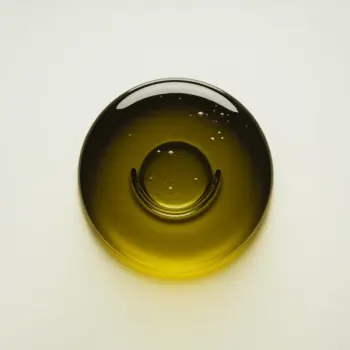Olive Oil vs Vegetable Oil are two commonly used cooking oils with distinct tastes, textures, and uses in the kitchen, impacting the flavor and nutritional profile of your dishes.

Olive oil is a natural oil extracted from olives, the fruit of the olive tree. It's known for its rich flavor profile and is a cornerstone of Mediterranean cuisine.

Vegetable oil is a generic term for a blend of different refined oils extracted from seeds and plants like soybean, corn, and canola. It has a neutral taste and high smoke point, making it versatile for cooking.
Olive oil is prized for its robust, fruity taste and varies in texture from delicate to peppery. It's sourced mainly from olive trees in the Mediterranean region. Vegetable oil, on the other hand, has a bland taste, a lighter texture, and is sourced from a variety of plant seeds, often mixed to create a consistent product.

Your ultimate Recipe Box, Meal Planner, and Cooking Class all in one
Best for vinaigrettes or dressings where its bold flavor can shine, such as a classic Greek salad dressing. Olive oil emulsifies well, giving a rich and smooth texture to the dressings. Suitable for neutral-flavored dressings or when you don't want the oil to overpower other ingredients. It's also a good choice for creamy dressings due to its lighter texture.
Extra virgin olive oil is ideal for sautéing at low to medium heat, adding a nuanced flavor to dishes like sautéed vegetables or seafood. Due to its higher smoke point, vegetable oil is better suited for high-heat frying, such as stir-frying or deep-frying, without imparting additional flavor to the food.
Can be used in baking to add a distinct, rich flavor to breads, cakes, and muffins. Its fruity notes work well in certain recipes like olive oil cake. A common choice for baking due to its neutral taste. It keeps baked goods moist without affecting their flavor profile, making it versatile for a variety of recipes.
You can substitute olive oil for vegetable oil in most recipes, but expect a change in flavor, especially if using extra virgin olive oil. In baking, olive oil can be substituted in a 1:1 ratio, but it may alter the final taste. For frying, substituting vegetable oil with olive oil should be done cautiously due to olive oil's lower smoke point.
Olive oil is rich in monounsaturated fats and has health benefits associated with its antioxidants. Vegetable oil's nutritional content varies based on the blend but generally has a higher proportion of polyunsaturated fats.
| Nutrient | Olive Oil ( per tablespoon ) | Vegetable Oil ( per tablespoon ) |
|---|---|---|
| Fat | 13.5g | 14g |
| Calories | 119 | 120 |
| Vitamin E | 1.9mg | 2.4mg |
| Saturated Fat | 1.9g | 1.1g |
| Monounsaturated Fat | 9.8g | 3.1g |
| Polyunsaturated Fat | 1.4g | 8.9g |
Yes, but be mindful of the smoke point. For high-heat frying, use refined olive oil rather than extra virgin.
Olive oil is generally considered healthier due to its monounsaturated fat content and antioxidants.
Yes, olive oil typically has a more pronounced flavor, especially extra virgin varieties.
Yes, you can bake with olive oil, but it may introduce a different flavor to your baked goods.
Mixing the two is fine and can balance flavor and smoke point for certain cooking methods.